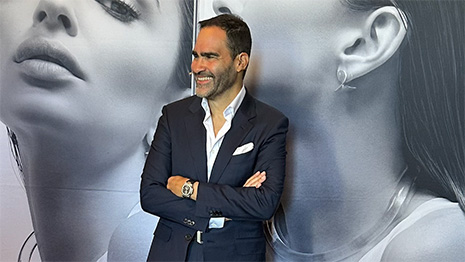 Daniel Langer is the founder and CEO of consulting firm Équité
Daniel Langer is the founder and CEO of consulting firm Équité
In last week’s Luxury Unfiltered column, I introduced the concept of the 4E's of luxury: emotion, experience, engagement and exclusivity.
To boost emotion and hype, many brands find themselves ensnared in a dangerous cycle: an overreliance on the hype generated by high-profile creative directors and their social media followings. While this strategy may spark immediate buzz, it often lacks the foundational brand storytelling necessary for long-term success.
The consequence? A revolving door of creative directors and a dilution of brand equity that leaves once-great names struggling to maintain their relevance.
Common threads
Recent industry shifts highlight this unsettling trend. Speculation surrounding creative director Hedi Slimane’s impending departure from Celine, as reported by outlets including Business of Fashion, epitomizes the instability within many luxury houses.
Similarly, the arrivals of creative directors such as Daniel Lee at Burberry and Sabato di Sarno at Gucci have arguably further eroded brand equity, instead of revitalizing these storied brands.
The abrupt exit of creative director Virginie Viard from Chanel, while not unexpected given the recent controversies around her fashion shows and collections, yet without a clear succession plan, underscores the chaos that ensues when the focus is misplaced.
The common thread in these examples is the often misplaced hope that a new creative director can single-handedly rejuvenate a brand. However, in today’s complex market, much more is needed to captivate and retain discerning clients.
Creatives need direction
The key lies in establishing a robust brand equity model that clearly defines the brand’s role in the lives of its clients. Without this, even the most ingenious creative directors are destined to be fleeting and ineffective.
In many cases, they accelerate the decay of the clarity of the brand positioning when their own creative vision is not calibrated by a clear brand story. When the designer becomes more powerful than the brand he represents, then a rapid brand equity erosion is almost preprogrammed.
Do not get me wrong: it is critical for creative directors to create excitement. However, for a brand to grow continuously, it must go beyond superficial hype and ground itself in a compelling, emotionally resonant story.
Because the story needs to be authentic and not just a marketing idea, its creation requires a strategic direction that aligns every aspect of the brand, from brand story to marketing to product development to sales to client experiences, with its core values and promises.
Brand audits show that most brands today lack the critical clarity and consistency needed in a rapidly changing world where AI-powered social media algorithms become gatekeepers between brands and clients.
It is, therefore, no surprise that there is a clear correlation between clarity of brand strategy and long-term financial success, while the short-term hype of the revolving door of creative directors moves very little, and if it does, often in the opposite direction.
Creative directors need a clear brand story as their script enables the brand strategy to be successful. Without it, they are like singers randomly assembled in an opera house being asked to create magic. Faced with no direction and an unclear role, even the best will perform horribly.
Without such coherence, the short-term tactics that generate initial excitement often end up diluting the brand’s essence, leaving it weaker and more vulnerable in the long run.
No opting out
The current struggles of many luxury brands are not symptoms of a market slowdown. They are the result of insufficient internal definition of their value creation systems that fail to connect with consumers on a deeper, more meaningful level.
This lack of strategic clarity leads to fragmented efforts that, while momentarily dazzling, ultimately fail to build lasting loyalty or brand equity. The urgency for luxury brands to reassess their approaches cannot be overstated.
The path to sustained success lies in cultivating an emotional brand story that resonates with clients, articulating a clear value proposition and ensuring that every creative execution reinforces the brand’s identity. This is, in my point of view, not optional.
For luxury brands, creating clarity with a powerful, differentiating strategy that sparks desire is a necessity in an era when consumers are more discerning and less loyal than ever before. If brands stick to the status quo—peers in a sea of sameness—and then hope that a creative director can save them without first doing the basics, then underperformance will proceed.
Burberry and Gucci are cautionary tales, and Chanel may steer deeper into an identity crisis without a strategic course correction. After several years of unprecedented price increases and a certain industry complacency as a result of seemingly never-ending client demand, especially from China, many luxury brands did not evolve their brand equity in the same way they increased prices.
A market slowdown was to be expected. It is time to prioritize substance over spectacle and foundation over flashy stunts.
By embracing a comprehensive brand equity model and committing to long-term value creation, luxury brands create enduring desirability as Hermès, Cartier, Patek Philippe, Rolex and Louis Vuitton and others have demonstrated.
The time for decisive action is now.
Luxury Unfiltered is a weekly column by Daniel Langer. He is the CEO of Équité, a global luxury strategy and brand activation firm. He is recognized as a global top-five luxury key opinion leader. He serves as an executive professor of luxury strategy and pricing at Pepperdine University in Malibu and as a professor of luxury at New York University, New York. Mr. Langer has authored best-selling books on luxury management in English and Chinese, and is a respected global keynote speaker.
Mr. Langer conducts masterclass management training on various luxury topics around the world. As a luxury expert featured on Bloomberg TV, Financial Times, The New York Times, Forbes, The Economist and others, Mr. Langer holds an MBA and a Ph.D. in luxury management, and has received education from Harvard Business School. Follow him on LinkedIn and Instagram.